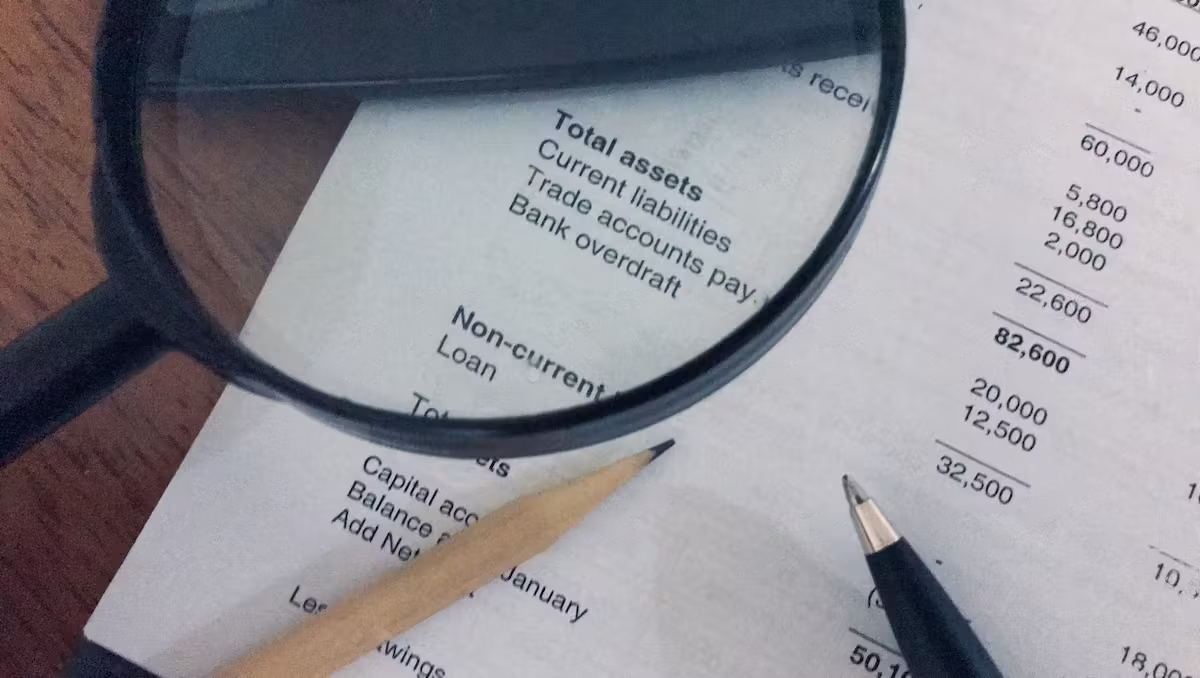
Debt can be overwhelming and confusing, especially when it comes to an understanding and managing total liabilities. Total liabilities refer to the amount of money an individual or company owes to others, both short-term and long-term. It includes everything from credit card debt to loans and mortgages and even taxes owed.
For many people, calculating and managing total liabilities can be daunting. However, having a solid understanding of your debt is important to make informed decisions about your finances and avoid financial pitfalls.
That’s why we’ve compiled a comprehensive guide to help you break down your debts, calculate your total liabilities, and manage your debt effectively. From understanding the different types of debt to creating a plan to pay off your debts, this guide will provide the tools and knowledge you need to take control of your finances and achieve financial stability.
Whether you’re struggling with debt or simply looking to improve your financial situation, this is the perfect place.
What Are Total Liabilities?
Total liabilities measure the debt an individual or company owes to others, both short-term and long-term. It includes all financial obligations expected to be paid in the future, such as loans, mortgages, credit card debt, taxes owed, and other liabilities.
Total liabilities are an important indicator of a person or company’s financial health, representing the total amount owed to creditors. Understanding your total liabilities is crucial because it allows you to create a financial plan that includes paying off your debts and managing your finances effectively.
Total liabilities can be divided into two main categories: short-term and long-term. Short-term liabilities are debts expected to be paid within a year, while long-term liabilities are debts not due for more than a year.
Managing total liabilities requires a comprehensive understanding of your financial situation.
This includes creating a budget, tracking spending, and prioritising debt payments. It’s important to make timely payments on all debts to avoid late fees and penalties and to negotiate with creditors if necessary to reduce the debt owed.
In addition, maintaining a good credit score is crucial to managing total liabilities. A good credit score helps you secure better loan terms and lower interest rates and demonstrates to lenders that you are a responsible borrower.
In summary, understanding total liabilities is crucial to managing your finances effectively. Knowing how much you owe and to whom, you can create a plan to pay off your debts and achieve financial stability.
Calculating Total Liabilities

Calculating total liabilities involves adding up all the debts owed by an individual or company, both short-term and long-term. Here are the steps to calculate total liabilities:
List All Your Debts
List all your debts, including credit card debt, personal loans, mortgages, taxes owed, and any other liabilities.
Determine The Type Of Debt
Categorise your debts as either short-term or long-term. Short-term liabilities are debts due within a year, while long-term liabilities are those due in more than a year.
Add Up Short-Term Liabilities
Total the amount of all short-term liabilities, such as credit card balances, personal loans, and taxes owed.
Add Up Long-Term Liabilities
Total the amount of all long-term liabilities, such as mortgages, car loans, and student loans.
Combine The Totals
Add the total of short-term liabilities to the total long-term liabilities to get the total liabilities. For example, you owe $5,000 on a credit card, $10,000 on a personal loan, $200,000 on a mortgage, and $20,000 in taxes owed. Your short-term liabilities would be $15,000 (credit card debt and personal loan), and your long-term liabilities would be $220,000 (mortgage). Adding these together, your total liabilities would be $235,000.
Calculating total liabilities is important in understanding your financial health and creating a plan to manage your debt. Knowing how much you owe and to whom, you can make informed decisions about paying off your debts and achieving financial stability.
Strategies For Managing And Paying Off Your Debts

Managing and paying off debts can be challenging, but several strategies can help individuals and companies manage their total liability effectively.
Here are some strategies for managing and paying off debts:
- Create a budget: Create a budget outlining your income, expenses, and debt payments. This will help you prioritise your debt payments and identify areas where you can cut back on expenses to free up more money for debt payments.
- Pay off high-interest debt first: If you have multiple debts, focus on paying off the debts with the highest interest rates first. This will help you save money in the long run by reducing the interest you’ll pay over time.
- Make extra payments: Consider making extra payments on your debts whenever possible. Even small extra payments can increase and help you pay off your debts faster.
- Consolidate debt: If you have multiple high-interest debts, consolidating them into a single, lower-interest loan can help you save on interest and simplify your debt payments.
- Negotiate with creditors: If you’re struggling to pay your debts, consider negotiating with your creditors. They may be willing to lower your interest rates, waive fees, or work out a payment plan that better suits your financial situation.
- Seek professional help: If you’re having trouble managing your debts, consider seeking help from a financial advisor or credit counselling service. They can help you create a debt management plan and provide guidance on managing your finances effectively.
Individuals and companies can effectively manage their total liabilities and achieve financial stability over time by using these strategies and staying committed to paying off debts.
The Importance Of Maintaining A Good Credit Score
Maintaining a good credit score is crucial for individuals and companies alike, as it can affect their ability to access credit and obtain favourable interest rates. Here are some reasons why having a good credit score is important:
- Access to credit: A good credit score is often a requirement for obtaining credit, such as loans and credit cards. Obtaining credit or getting approved for loans can be difficult without a good credit score.
- Lower interest rates: A good credit score can also result in lower interest rates on loans and credit cards. This can save individuals and companies significant money over time, as they will pay fewer interest charges.
- Better insurance rates: In some cases, insurance companies may also consider an individual’s credit score when determining insurance rates. A good credit score can lower insurance premiums and save individuals and companies money on insurance expenses.
- Increased negotiating power: With a good credit score, individuals and companies may have increased negotiating power when obtaining credit or negotiating loan terms. Lenders may be more willing to offer borrowers with good credit scores favourable terms.
- Job opportunities: In some industries, employers may consider an individual’s credit score when hiring. A good credit score can open up job opportunities and help individuals advance.
Conclusion
Managing total liabilities is an important part of financial planning for individuals and companies. By understanding how to calculate and manage current and long-term liabilities, individuals and companies can make informed decisions about their finances and work towards achieving their financial goals.
It is important to create a budget and prioritise debt payments. By creating a budget that outlines income, expenses, and debt payments, individuals and companies can identify areas where they can cut back on expenses and allocate more money towards debt payments.
Additionally, prioritising debt payments and focusing on paying off high-interests first can reduce the interest paid over time and speed up the debt repayment process.
Consolidating debts, negotiating with creditors, and seeking professional help are effective strategies for managing total liabilities. Finally, maintaining a good credit score is crucial for accessing credit, obtaining favourable interest rates, and securing job opportunities in some industries.
Overall, managing total liabilities may seem overwhelming at first, but with the right strategies and mindset, it is possible to work towards achieving financial stability and freedom. By taking the steps outlined in this guide, individuals and companies can effectively manage their total liabilities and achieve their financial goals over time.
FAQS
Why is it important to calculate total liabilities?
Calculating total liabilities is important because it helps you understand your financial obligations and manage your debt effectively. By knowing how much you owe, you can create a plan to pay off your debts and avoid taking on more debt than you can handle.
What are some strategies for managing total liabilities?
Several strategies for managing total liabilities include:
- Prioritising and paying off high-interest debt.
- Consolidating debt.
- Negotiating with creditors.
- Creating a debt repayment plan.
- Avoiding future debt.
Can I calculate total liabilities independently, or must I hire a professional?
You can calculate total liabilities independently with access to your financial statements and a basic understanding of accounting principles. However, consult a financial professional if you are unsure how to do this or have complex financial situations.






